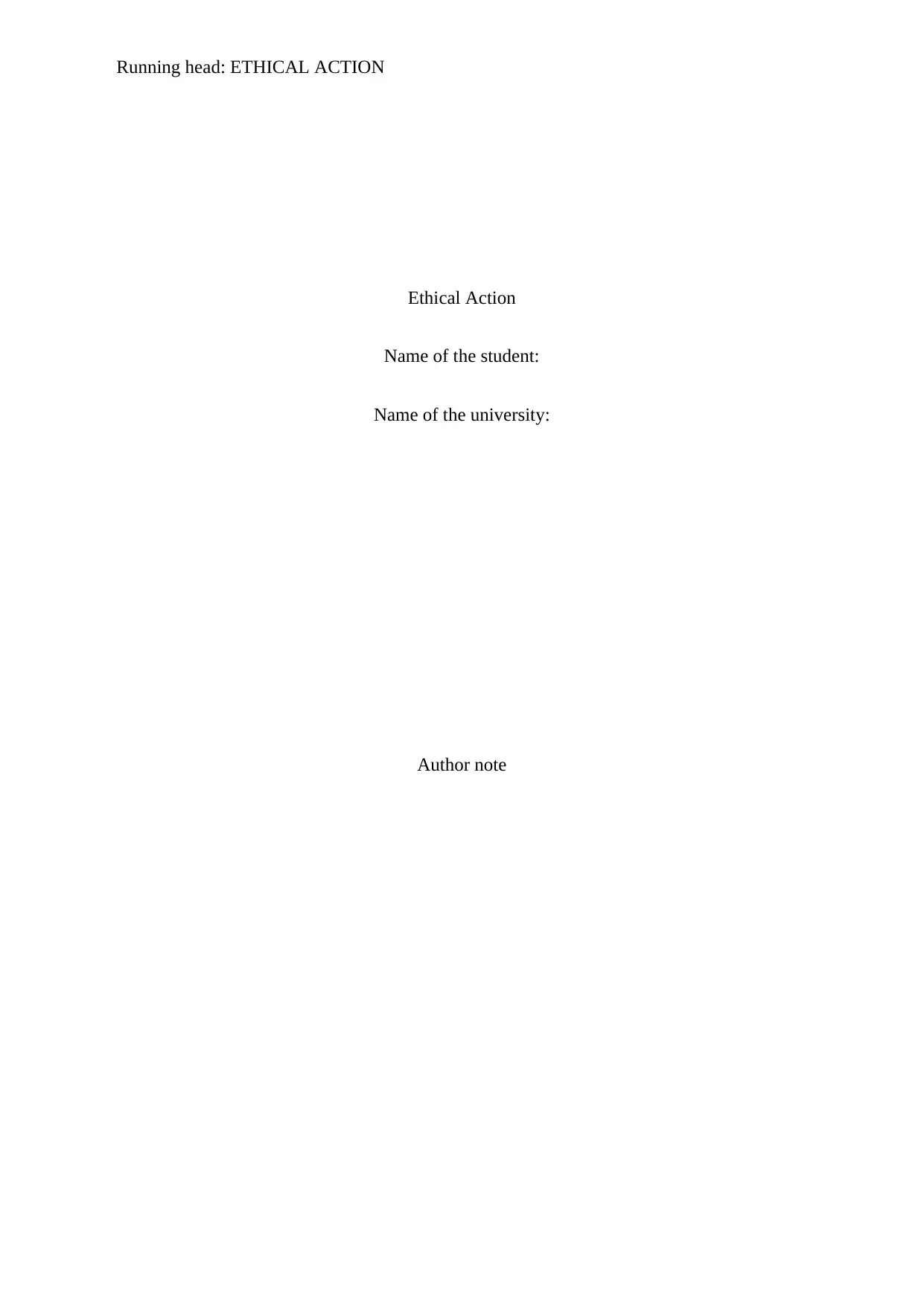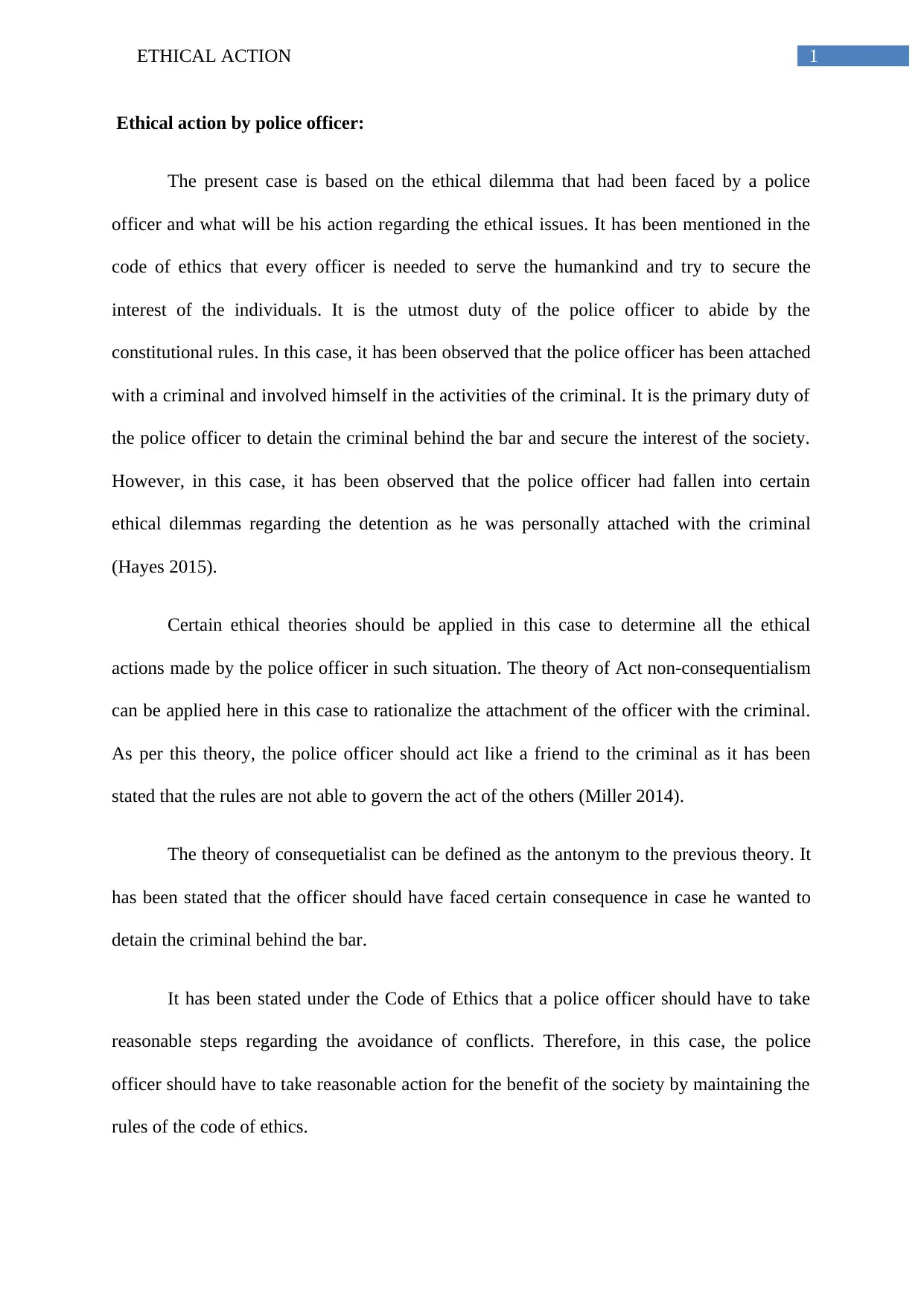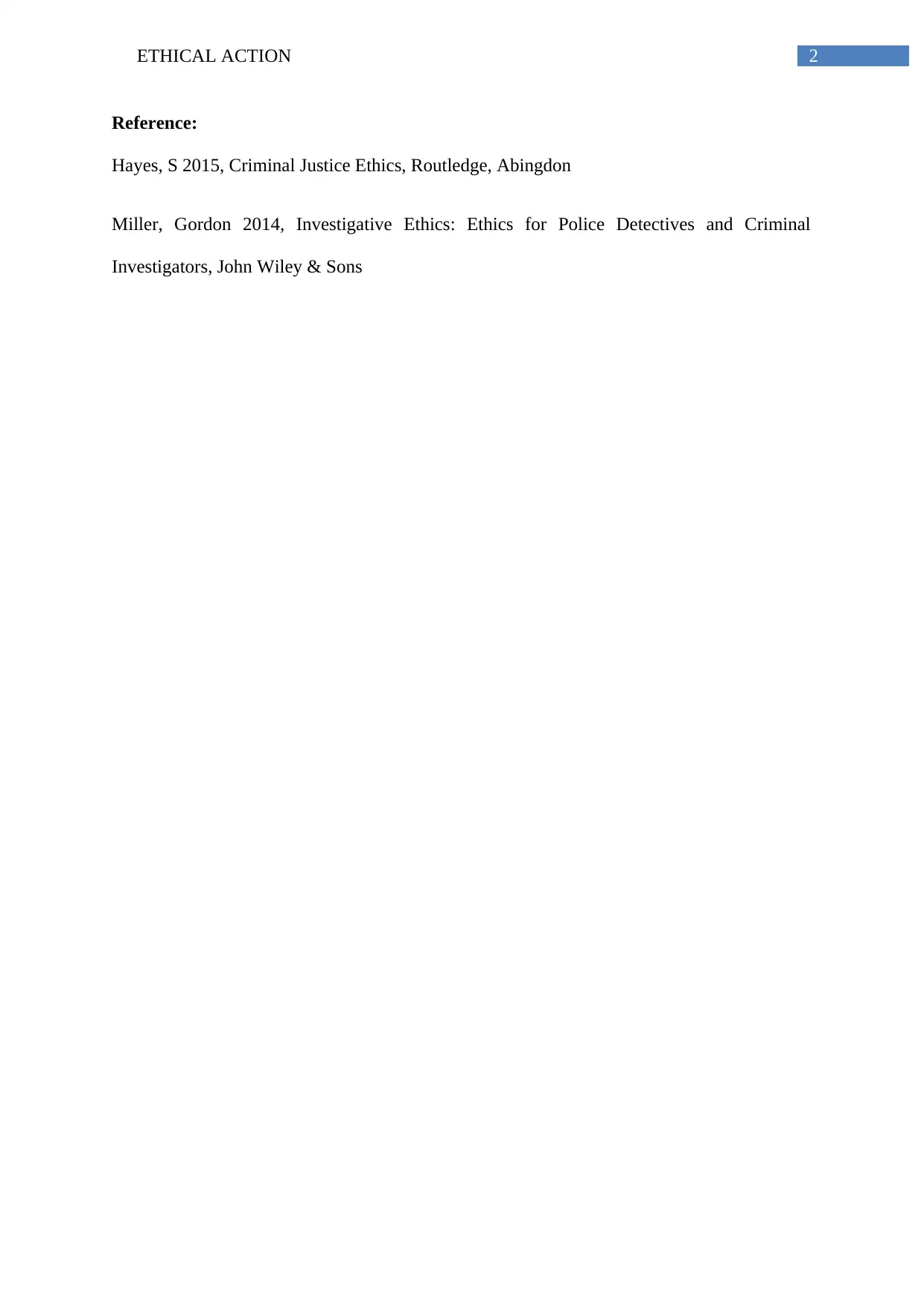Ethical Action: Police Officer's Ethical Dilemma and Theory Analysis
VerifiedAdded on 2020/03/28
|3
|403
|65
Report
AI Summary
This report delves into the ethical challenges faced by a police officer, specifically addressing the conflict arising from personal relationships with criminals. The assignment examines the application of ethical theories, such as consequentialism and non-consequentialism, to analyze the officer's actions and decisions. It explores the implications of the officer's behavior in relation to the code of ethics and the responsibility to uphold the law. The report aims to evaluate the officer's actions and provide a comprehensive understanding of the ethical dilemmas involved in law enforcement, emphasizing the importance of maintaining integrity and professional conduct. The report also references the importance of detaining criminals to ensure the safety of the society. The report uses the references from Hayes (2015) and Miller (2014) to provide more insights on the topic.
1 out of 3










![[object Object]](/_next/static/media/star-bottom.7253800d.svg)